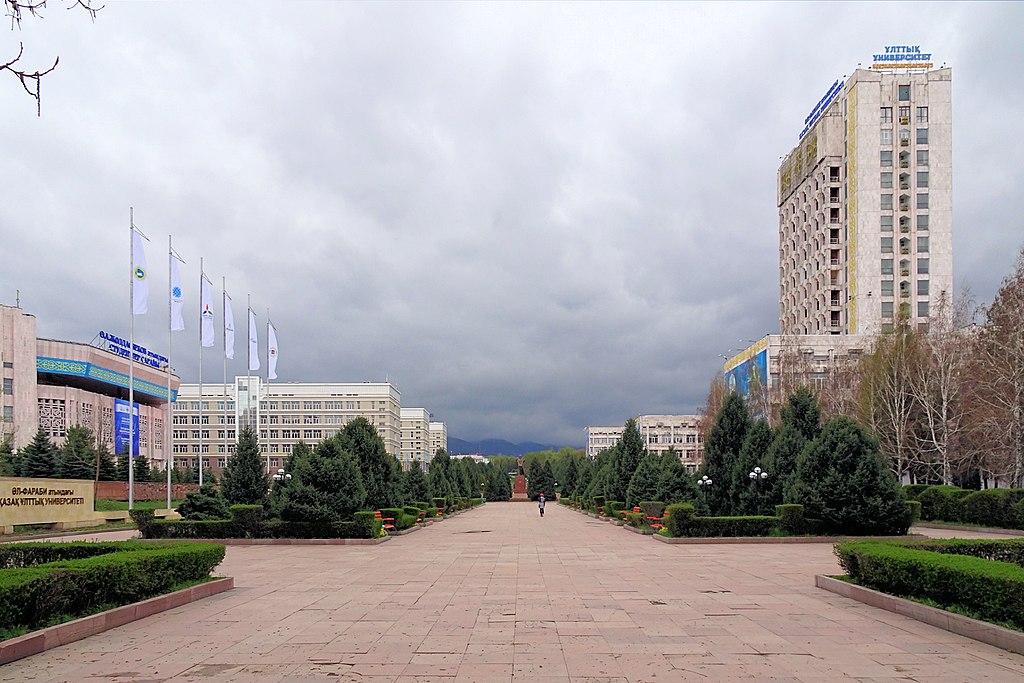The imperative for global sustainability has never been clearer. The Intergovernmental Panel on Climate Change (IPCC)’s Sixth Assessment Report paints a stark picture: intensifying heatwaves, rising sea levels, and more extreme weather events are a reality we face due to human activity. As UN Secretary-General António Guterres emphasised, “We are at a crossroads. We can continue down the path of division and destruction, or pave the way for a sustainable and equitable future.” The onus lies not only with governments and corporations but also with academia, the wellspring of knowledge and innovation.
In this context, the United Nations Academic Impact (UNAI) initiative emerges as a critical platform. Launched in 2010, UNAI fosters collaboration between institutions of higher education and the United Nations, aligning them with the UN’s Sustainable Development Goals (SDGs). These 17 goals, encompassing everything from poverty eradication to climate action, provide a comprehensive blueprint for a more just and sustainable world. By engaging universities in research, education, and outreach activities aligned with the SDGs, UNAI harnesses the power of academia to address our planet’s most pressing challenges.
UNAI’s network boasts over 1,400 member institutions worldwide. Among these, Al-Farabi Kazakh National University (AFKZU) in Almaty, Kazakhstan, stands out as a vital hub for sustainability in Central Asia. Founded in 1934, AFKZU is the largest university in Kazakhstan and a leading research institution in the region. Recognising the urgency of sustainability challenges, AFKZU actively participates in UNAI, playing a pivotal role in promoting environmental awareness, research, and education within Kazakhstan and beyond.
AFKZU’s commitment to sustainability is evident in its diverse initiatives. The university established the Green University Office, a dedicated body that coordinates sustainability efforts across campus. AFKZU has also integrated sustainability principles into its curriculum, offering courses on environmental management, green economics, and renewable energy. Furthermore, the university actively pursues research on climate change adaptation, water resource management, and sustainable land use practices.
AFKZU’s leadership in sustainability extends beyond its campus walls. The university collaborates with local communities, NGOs, and government agencies on various sustainability projects. For instance, AFKZU partnered with the UNDP (United Nations Development Programme) to develop a comprehensive strategy for sustainable development in Almaty. This collaboration resulted in the creation of Almaty’s Green Economy Action Plan, outlining concrete measures to promote energy efficiency, waste reduction, and green infrastructure development in the city.
AFKZU’s focus on sustainability is particularly crucial for Central Asia. The region is highly vulnerable to climate change, with rising temperatures, melting glaciers, and increased water scarcity posing significant threats. A 2022 World Bank report warns that climate change could cost Central Asian countries up to 8.4% of their GDP by 2050. Through its research and educational initiatives, AFKZU empowers future generations with the knowledge and skills needed to navigate these challenges and build a more resilient future for the region.
AFKZU’s success story exemplifies the transformative potential of UNAI. By fostering collaboration between universities and the UN, UNAI creates a global knowledge-sharing network that accelerates progress towards the SDGs. Universities like AFKZU serve as hubs for innovation, where researchers develop solutions to complex sustainability challenges. These solutions are then disseminated through educational programs, empowering students to become changemakers in their communities.
Looking ahead, UNAI’s role in achieving the SDGs is likely to become even more critical. With the 2030 deadline for achieving the SDGs rapidly approaching, there is a pressing need to accelerate progress. UNAI’s ability to mobilise the collective knowledge and resources of universities worldwide offers a powerful tool in this endeavour. By fostering interdisciplinary research collaborations, promoting knowledge exchange, and empowering future generations of sustainability leaders, UNAI can play a catalytic role in shaping a more sustainable future for our planet.
Strengthening UNAI’s Impact
While UNAI has demonstrably contributed to advancing sustainability, there is room for further strengthening its impact. Here are some key considerations:
-
Expanding membership: While UNAI boasts a significant membership base, there is potential for further growth, particularly in underrepresented regions. Engaging universities from developing countries is crucial for ensuring a truly global approach to sustainability.
-
Deepening collaboration: Strengthening collaboration between member institutions can foster knowledge exchange and joint research projects. UNAI can facilitate the creation of regional and thematic networks, allowing universities to learn from each other’s experiences and expertise.
-
Enhancing measurement and monitoring: Developing robust metrics to track the progress of UNAI member institutions towards the SDGs is critical. This will allow for a more comprehensive evaluation of UNAI’s impact and enable course correction where necessary.
-
Resource mobilisation: UNAI’s effectiveness hinges on its ability to secure resources for member institutions. This includes funding for research projects, scholarships for students from developing countries, and capacity-building programs for faculty. Partnerships with the private sector and philanthropic organisations can be instrumental in mobilising these resources.
The United Nations Academic Impact (UNAI) serves a vital role in mobilising the power of academia to address global sustainability challenges. By fostering collaboration between universities and the UN, UNAI creates a platform for knowledge sharing, innovation, and capacity building. Al-Farabi Kazakh National University (AFKZU) stands as a powerful example of how UNAI member institutions can drive progress towards the SDGs. AFKZU’s commitment to sustainability research, education, and community outreach serves as a model for universities worldwide.
As the world grapples with an escalating climate crisis and a multitude of interconnected sustainability challenges, UNAI’s role becomes ever more crucial. By strengthening its membership base, deepening collaboration among institutions, and enhancing its ability to measure and track progress, UNAI can become an even more potent force for positive change. The combined knowledge and ingenuity of the world’s universities, channeled through UNAI, offer a beacon of hope in our collective pursuit of a sustainable future.
Photo credit: Al-Farabi Kazakh National University (AFKZU) in Almaty, Kazakhstan, Alexandru Panoiu from Bucharest, Romania, CC BY 2.0, via Wikimedia Commons
Data and Statistics:
The Intergovernmental Panel on Climate Change (IPCC)’s Sixth Assessment Report: https://www.ipcc.ch/
Over 1,400 UNAI member institutions: https://www.un.org/en/academic-impact/page/about-unai
Up to 8.4% of GDP loss for Central Asian countries by 2050 due to climate change: https://www.worldbank.org/en/region/eca/brief/climate-change-in-europe-and-central-asia
2030 deadline for achieving the SDGs: https://sdgs.un.org/goals


